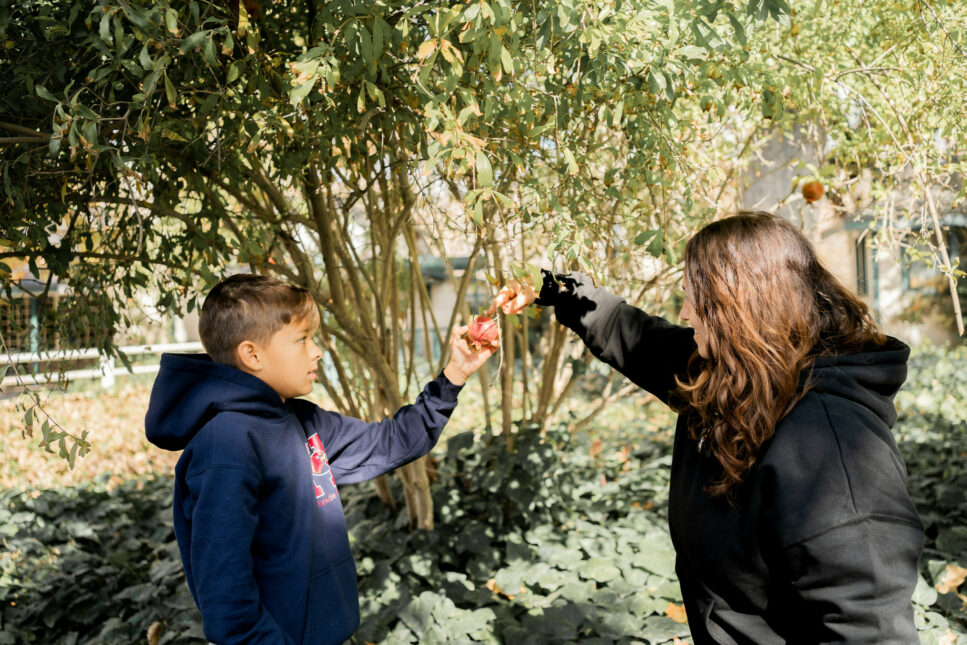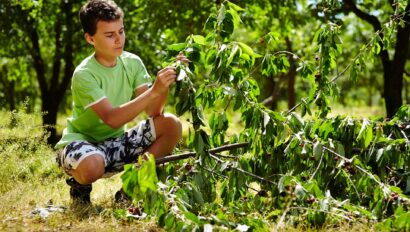
Outdoor learning is important for students as it enhances their understanding of the environment, promotes teamwork, and builds resilience. However, moving education to the great outdoors isn’t always a walk in the park. Educators encounter various challenges, such as resource limitations and unpredictable weather conditions. Nevertheless, with thoughtful planning and innovative strategies, the outdoor learning experience can be rewarding and successful.
Challenge #1: Limited Resources for School Field Trips
Schools often work with limited budgets, which can make it difficult to secure the funds needed to have successful outdoor education classes. But there’s no need to worry! Here are some ways to make the most of the resources that you do have:
- Explore Grants: Investigate grants aimed at supporting outdoor education programs. There are also several school funding programs in California designed specifically to supply funds toward providing students with a well-rounded education.
- Build Community Partnerships: Reach out to local businesses or parks and recreation departments. They might provide discounts, equipment rentals, or even sponsor your school field trips.
- Be Resourceful: Get inventive with repurposed materials! Use buckets for seating, old tarps for shelters, or natural items like logs and rocks for engaging outdoor education activities.
Challenge #2: Safety First, Always
Prioritizing safety is essential in outdoor education. There can be concern for potential dangers like insect bites, allergic reactions, and falls. Here are some tips to ensure safety while enhancing the outdoor learning experience:
- Know Your Limits: Choose activities and locations that are suitable for your students’ age and experience.
- Preparation is Key: Carry out detailed risk assessments, obtain any necessary permits, and review first-aid procedures with your students. Be familiar with emergency evacuation routes and local resources.
- Gear Up: Ensure that students are dressed appropriately for the weather and have the correct footwear. It’s also a good idea to have a first-aid kit, insect repellent, and sunscreen readily available.
Challenge #3: Unpredictable Weather
Unpredictable weather can disrupt even the best-laid outdoor plans. A sudden rain shower or intense heat can dampen enthusiasm and limit activities. However, don’t worry! Here are some tips to help you handle weather challenges:
- Have a Plan B (and C): Create an itinerary with activities that can adapt to various weather conditions. Utilize sheltered spaces for lessons, explore indoor learning about local plants and animals during rain delays, or consider rescheduling if needed.
- Make the Most of It: Turn unpredictable weather into a chance for learning. Talk about weather patterns, cloud types, or the significance of dressing appropriately for the conditions.
- Invest in a Rain or Shine Policy: Clearly outline expectations and procedures for inclement weather. This will help both students and parents be ready for any necessary changes.
Beyond the Challenges: Setting Your Outdoor Education Program Up for Success
While addressing these challenges is crucial, here are some additional tips to ensure your outdoor education program thrives:
- Student Buy-In: Get students excited by showing pictures of the location, discussing activities, and addressing potential concerns.
- Teacher Buy-In: Get teachers excited by choosing a site that allows them to participate and build relationships with their students outside of the typical classroom setting. Choose an outdoor education center where the facility teaches the classes, so the teachers can enjoy the experience too.
- Embrace Wonder: Foster a sense of exploration and discovery. Encourage students to ask questions, observe their surroundings, and connect with nature.
- Make it Fun!: Integrate games, storytelling, and hands-on activities to keep students engaged and motivated.
- Reflection is Key: After the program, have students reflect on their experiences, what they learned on their school field trip, and how it connects to classroom lessons.
The Benefits of Outdoor Learning
By following these tips, you can be prepared for the challenges that come with outdoor education. Instructors can create a program that promotes environmental stewardship, teamwork, and a love for the natural world. Wonder Valley offers various outdoor education activities that are customizable, instructor-led, and equipped with all necessary supplies.



